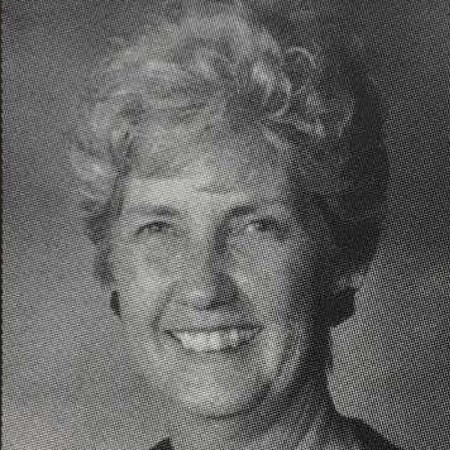1983 to 1987 – Council of Collegiate Women Athletic Administrators
Despite the growth in CCWAA membership and the explosion of women participating in collegiate sports, “participation and employment opportunities [for women] were not changing in parallel fashion” (CCWAA Newsletter Vol. 3.1). In 1973, 95% of women’s athletic programs were led by women. By 1985, only 14% were led by women. Even more striking, 38% of all college athletic programs did not have any female administrators.
This raised the question: Does the decline of women in athletic administration really matter? (Vol. 3.1)
According to a 1984 study by Acosta and Carpenter, the answer was a resounding yes. It was obvious there was a need for female role models in both coaching and administration and that “women deserve no less than equal opportunity in employment” (Vol. 3.1).
After the CCWAA presented these findings to the NCAA President’s Commission in early 1986, the Commission appointed a committee to study the trends related to the decreasing presence of professional women in intercollegiate athletics. The Commission presented the committee’s findings at the 1986 NCAA Convention and outlined the need for a strong, affirmative program for women in professional positions in athletics and committed to work to reverse these trends.
Major accomplishments of the CCWAA during President Kay Don’s tenure (CCWAA Newsletter Vol. 4.2):
- Expanding the newsletter – attempting to gain corporate sponsorship
- Impacting the President’s Commission – studying the decline of women in athletic programs
- Honoring groups, organizations, and/or individuals for their support of women’s athletics over the years
- Impacting NCAA legislation
- Attempting to incorporate all women administrators, i.e. NCAA Divisions l-ll-lll, NAIA, NJCAA, conference administrators
- Creating a network and support system for those who are having difficulties
In 1984 the CCWAA created the Honor Award, which recognizes individuals and/or entities that have exemplified outstanding support of women in athletics and their success. The first Honor Award recipient was the Broderick Company. To view all Honor Award recipients click here.

Kay Don
Texas A&M / Cal State University-Dominguez Hills
Kay Don spent 25 years in various areas of intercollegiate athletics. She served as the Assistant Athletics Director at Texas A&M for 12 years and was responsible for the development of the women’s athletic program. She coached multiple sports and was the first women administrator in the athletics department. Kay also worked as the Associate Athletics Director at Long Beach State University, then Director of Athletics at California State University at Dominguez Hills. She completed her career as the Managing Director of Stony Brook University Indoor Sports Complex where she retired in October 2003. She was a major driving force in Stony Brook’s elevation to a Division I program and overall improvements of the athletic facilities.
CCWAA Board Members 1983-87
Phyllis Bailey, Ohio State University
Jane Betts, Massachusetts Institute of Technology
Jean Cerra, University of Missouri
Kathy Clark, University of Idaho
Mary Ellen Cloninger, Bowling Green State University
June Davis, University of Nebraska
Della Durant, Penn State University
Linda Estes, University of New Mexico
Karen Fey, New Mexico State University
Christine Grant, University of Iowa
Kaye Hart, Utah State University
Barbara Hedges, University of Southern California
Mary Alice Hill, San Diego State University
Judith Holland, University of California-Los Angeles
Barbara Hollmann, University of Montana
Sharon Holmberg, Big Sky Conference
Phyllis Howlett, Big Ten Conference
Carole Huston, Bowling Green State University
Ann Marie Lawler, University of Florida
Linda Moulton, Clark University
Martha Mullins, Eastern Kentucky University
Barbara Palmer, Florida State University
Mona Plummer, Arizona State University
Mary Roby, University of Arizona
Jeanne Rowlands, Northeastern University
Marcia Saneholtz, Washington State University
Pam Strathairn, Stanford University
Judy Sweet, University of California-San Diego
Sharon Taylor, Lock Haven University
Patty Viverito, Gateway Conference
Pamela Walker, University of Redlands
Mary Jo Wynn, Southwest Missouri State University
Phyllis Bailey, Ohio State University
Jane Betts, Massachusetts Institute of Technology
Jean Cerra, University of Missouri
Kathy Clark, University of Idaho
Mary Ellen Cloninger, Bowling Green State University
June Davis, University of Nebraska
Della Durant, Penn State University
Linda Estes, University of New Mexico
Karen Fey, New Mexico State University
Christine Grant, University of Iowa
Kaye Hart, Utah State University
Barbara Hedges, University of Southern California
Mary Alice Hill, San Diego State University
Judith Holland, University of California-Los Angeles
Barbara Hollmann, University of Montana
Sharon Holmberg, Big Sky Conference
Phyllis Howlett, Big Ten Conference
Carole Huston, Bowling Green State University
Ann Marie Lawler, University of Florida
Linda Moulton, Clark University
Martha Mullins, Eastern Kentucky University
Barbara Palmer, Florida State University
Mona Plummer, Arizona State University
Mary Roby, University of Arizona
Jeanne Rowlands, Northeastern University
Marcia Saneholtz, Washington State University
Pam Strathairn, Stanford University
Judy Sweet, University of California-San Diego
Sharon Taylor, Lock Haven University
Patty Viverito, Gateway Conference
Pamela Walker, University of Redlands
Mary Jo Wynn, Southwest Missouri State University
World News

Dr. Sally Ride became the first American woman to fly into space on June 18, 1983. Ride was finishing her Ph.D. at Stanford University in 1977 when she read an article in the student newspaper that women were finally allowed to apply for employment at NASA. Six years later, Ride flew on the space shuttle Challenger. Not only was Ride the first American woman to fly into space, but also the youngest American in space at the age of 32.
“Young girls need to see role models in whatever careers they may choose. You can’t be what you can’t see.” -Dr. Sally Ride
Additional news in 1984:
Mississippi became the last state to ratify the 19th Amendment, granting women the right to vote.
Additional news in 1986:
The U.S. Supreme Court announced that a work environment could be declared hostile or abusive based on sexual discrimination.
